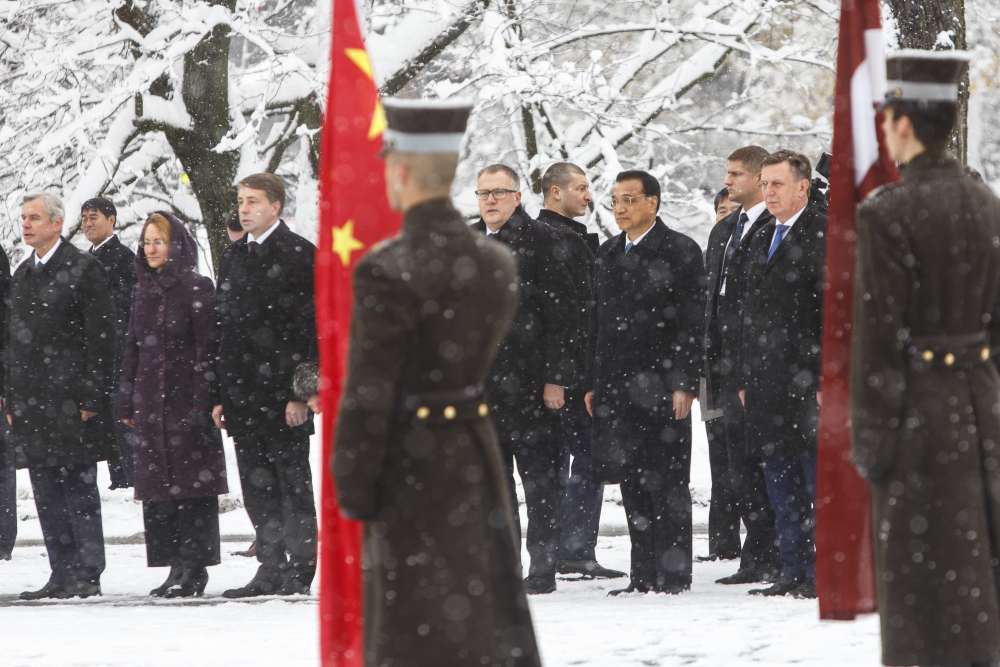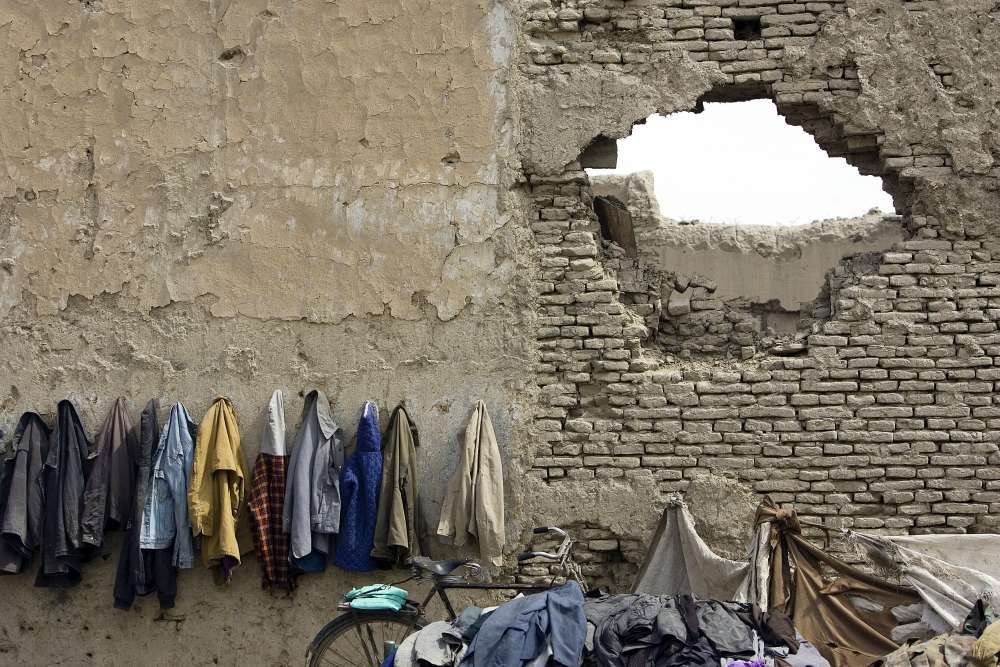Authoritarian Advance: Responding to China’s Growing Political Influence in Europe

Stiftung Mercator
China’s rapidly increasing political influencing efforts in Europe and the self-confident promotion of its authoritarian ideals pose a significant challenge to liberal democracy as well as Europe’s values and interests. While Beijing’s efforts have received much less scrutiny than the efforts of Putin’s Russia, Europe neglects China’s increasing influence at its own peril. Drawing on its economic strength and a Chinese Communist Party (CCP) apparatus that is geared towards strategically building stocks of influence across the globe, Beijing’s political influencing efforts in Europe are bound to be much more consequential in the medium- to long-term future than those of the Kremlin.
China commands a comprehensive and flexible influencing toolset, ranging from the overt to the covert, primarily deployed across three arenas: political and economic elites, media and public opinion, and civil society and academia. In expanding its political influence, China takes advantage of the one-sided openness of Europe. Europe’s gates are wide open whereas China seeks to tightly restrict access of foreign ideas, actors and capital.
The effects of this asymmetric political relationship are beginning to show within Europe. European states increasingly tend to adjust their policies in fits of “preemptive obedience” to curry favor with the Chinese side. Political elites within the European Union (EU) and in the European neighborhood have started to embrace Chinese rhetoric and interests, including where they contradict national and/or European interests. EU unity has suffered from Chinese divide and rule tactics, especially where the protection and projection of liberal values and human rights are concerned. Beijing also benefits from the ‘services’ of willing enablers among European political and professional classes who are happy to promote Chinese values and interests. Rather than only China trying to actively build up political capital, there is also much influence courting on the part of those political elites in EU member states who seek to attract Chinese money or to attain greater recognition on the global plane.
The Chinese leadership’s political influence-seeking in Europe is driven by two interlocking motivations. First and foremost, it seeks to secure regime stability at home. Second, Beijing aims to present its political concepts as a competitive, and ultimately superior, political and economic model. Driven by these motivations, Beijing pursues three related goals. First, it aims to build global support on specific issues and policy agendas. This includes fostering solid networks among European politicians, businesses, media, think tanks, and universities, thereby creating layers of active support for Chinese interests. Second, China seeks to weaken Western unity, both within Europe, and across the Atlantic. Third, Beijing pushes hard to create a more positive global perception of China’s political and economic system as a viable alternative to liberal democracies.
In the debate on Beijing’s influencing, Chinese officials have complained about Western actors questioning “normal economic co-operation and cultural exchanges with other countries.” This negates the fact that, from the perspective of liberal democracies, all areas of interaction with China are potentially problematic and deserve scrutiny. After all, China’s political model is based on an authoritarian regime intent on strengthening a deeply illiberal surveillance state at home while also exporting – or at least trying to popularize – its political and economic development model abroad. Thus, today, all areas of Europe’s interaction with China have strong political undertones.
If Europe intends to stop the momentum of Chinese influencing efforts, it needs to act swiftly and decisively. In responding to China’s advance, European governments need to make sure that the liberal DNA of their countries’ political and economic systems stay intact. Some restrictions will be necessary, but Europe should not copy China’s illiberalism. While staying as open as possible, Europe needs to address critical vulnerabilities to Chinese authoritarian influencing through a multi-pronged strategy that integrates different branches of government, businesses, media, civil society, culture/arts as well as academia:
- Europe needs to better leverage the collective weight of EU member states. Larger member states like Germany and France need to take serious steps towards putting their privileged bilateral relations with China in the service of common European interests. Complaining about the 16+1 format China uses to interact with smaller EU members in Central and Eastern Europe while engaging in 1+1 formats with Beijing will not help to come up with a collective EU response on issues where Chinese action fails to resonate with shared European interests.
- European governments need to invest in high-caliber, independent China expertise. Raising awareness about and responding to China’s political influencing efforts in Europe can only succeed if there is sufficient impartial expertise on China in think tanks, universities, NGOs, and media across Europe. This will also help to keep out ‘unwanted’ Chinese money in those institutions.
- The EU needs to continue providing alternatives to (the promises of) Chinese investments in European countries. Brussels can point to the fact that by far the most investment within the EU and its periphery still comes from within Europe. In the vast majority of instances, EU funding still is much more attractive for EU member states than Chinese money. However, the EU also needs to implement measures to align BRI investments in its neighborhood with European interests. This includes enabling third countries to properly evaluate, monitor, and prepare large-scale infrastructure projects, including those financed by China.
- The EU and its members need to bolster a flexible set of investment screening tools. Europe must be able to stop state-driven takeovers of companies that are of significant public interest. In addition to high-tech sectors as well as key parts of public infrastructure, this notably includes the media as an institution of critical importance to liberal democracies. In addition, foreign funding of political parties from outside Europe, including from China, should be banned across the EU.
- The EU needs to invest in strengthening national and European security regimes, including cybersecurity and counterintelligence efforts. European intelligence services urgently need to enhance cooperation on Chinese activities, both to arrive at a common understanding of the threat and to deliver joint responses. EU members should put (additional) awareness-building measures in place to sensitize potential targets of Chinese intelligence activities. In particular, decision-makers and scholars should be briefed more systematically about common patterns of contact-building and approaches by Chinese intelligence agencies or related actors.
- For civil society actors and the wider public to get a full picture of authoritarian influencing, liberal democracies need to leverage one of the key assets of open societies: the power of critical public debate. Implementing transparency requirements concerning collaboration with Chinese actors for media agencies, universities, and think tanks, among others, would also help raise awareness of the existence and often problematic purposes of the various influencing mechanisms Chinese state actors employ.
- Europe needs to make sure that efforts to curtail the CCP influencing agenda do not degenerate into a campaign targeting Chinese citizens and culture. EU members should also provide support to those in the Chinese communities in Europe who find themselves pressured to support the CCP influencing agenda.
…
The full joint report by GPPi and MERICS is available for download.
Research for this publication was partly funded by Stiftung Mercator.








